| Title | Clinical Applications of Brain-Computer Interfaces: Current State and Future Prospects. |
| Publication Type | Journal Article |
| Year of Publication | 2009 |
| Authors | Mak, JN, Wolpaw, J |
| Journal | IEEE reviews in biomedical engineering |
| Volume | 2 |
| Pagination | 187–199 |
| Date Published | 2009 |
| ISSN | 1941-1189 |
| Abstract | Brain-computer interfaces (BCIs) allow their users to communicate or control external devices using brain signals rather than the brain's normal output pathways of peripheral nerves and muscles. Motivated by the hope of restoring independence to severely disabled individuals and by interest in further extending human control of external systems, researchers from many fields are engaged in this challenging new work. BCI research and development have grown explosively over the past two decades. Efforts have recently begun to provide laboratory-validated BCI systems to severely disabled individuals for real-world applications. In this review, we discuss the current status and future prospects of BCI technology and its clinical applications. We will define BCI, review the BCI-relevant signals from the human brain, and describe the functional components of BCIs. We will also review current clinical applications of BCI technology, and identify potential users and potential applications. Finally, we will discuss current limitations of BCI technology, impediments to its widespread clinical use, and expectations for the future. |
| URL | http://www.ncbi.nlm.nih.gov/pubmed/20442804 |
| DOI | 10.1109/RBME.2009.2035356 |

